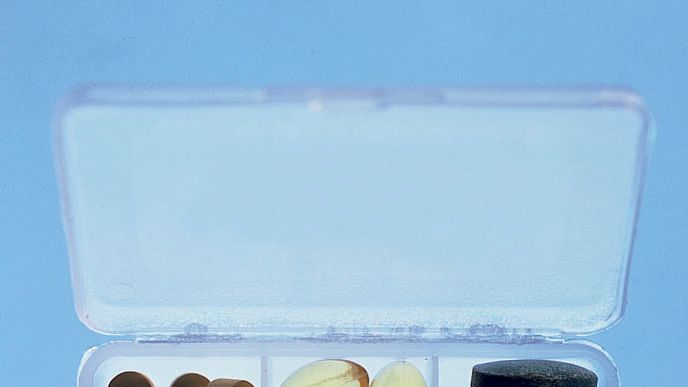
The Best Prenatal Supplements To Support You Through Pregnancy
The most important prenatal vitamins are folic acid and vitamin D. “Folic acid is essential for cell growth and development,” says Charlotte Hoskin, registered midwife and advanced nurse practitioner at My Expert Midwife. “Taking 400 mcg folic acid every day can help reduce the risk of your baby developing brain and spine health issues, which are known as Neural Tube Defects (NTD). If you did not take folic acid before you conceived, you should start as soon as you find out you’re pregnant.”
Vitamin D is responsible for regulating our calcium and phosphate levels, which keep our bones, teeth and muscles healthy. For optimum results, experts recommend taking 10 mcg or 4000 IU (international units) daily. “Ensure you check the label as taking more than 100 mcg of vitamin D a day can be harmful to you and your baby,” warns Hoskin.
Besides folic acid and vitamin D, Hoskin recommends supplements that contain calcium, vitamin C, vitamin B6 and B12, zinc, iodine and omega-3 fatty acids, which can help promote a baby’s brain development. When choosing omega fish oils, consider brands that show their provenance and a clean supply chain, so you are limiting your exposure to harmful pollutants like mercury. If you are vegan and want to avoid fish, consider algae oil alternatives.
Another thing to be mindful of is iron, a key component of Vida Glow’s Prenatal+ supplements. “Some pregnant women require iron supplements as iron needs increase during pregnancy to support the growing foetus and placenta,” says Dr Kayat. “Iron is vital for forming red blood cells, which are needed to transport oxygen to the foetus.”
In the lead-up to pregnancy, you might also want to look for a formula containing antioxidants like Coenzyme Q10, especially if you are over the age of 32. “After the age of 32, our fertility declines naturally, as does our ability to synthesise COQ10, so including this is a good way to proactively support egg quality,” says Rhian Stephenson, nutritionist, functional medicine practitioner and founder of Artah. Stephenson also recommends supplements that contain a good dose of Choline (at least 150 mg). “Studies have shown that women don’t get enough to meet their own RDA, let alone the increased needs in pregnancy,” she says. “This is not only essential for foetal cognitive development, but is involved in basic reproductive health, including ovulation, egg quality, and implantation.”
Other than that, look for a balanced nutritional supplement with the right amounts of vitamins and minerals to support you and your baby, that doesn’t contain anything you don’t need. You can lay the groundwork for good health by taking a supplement when you are trying to conceive, or as soon as you discover you’re pregnant.